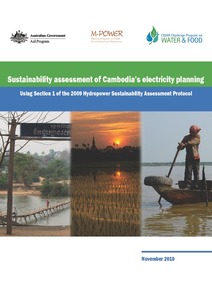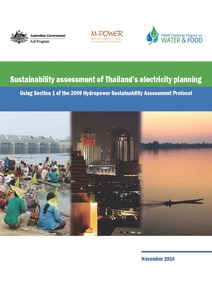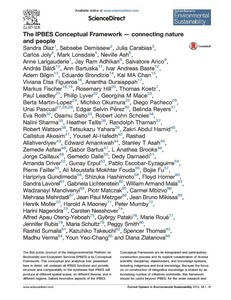Sustainability assessment of Cambodia's electricity planning: Using section 1 of the 2009 hydropower sustainability assessment protocol
The rapid sustainability assessment of Mekong electricity planning in Cambodia using Section I of the 2009 Draft Hydropower Sustainability Assessment Protocol (2009 HSAP) was conducted by a group of Cambodian assessors from March to May 2010. A multi-stakeholder consultation and trialing was conducted in Phnom Penh on April 8, 2010.





